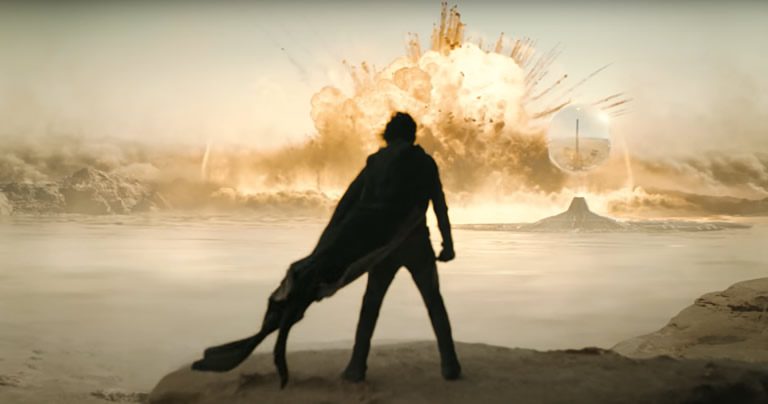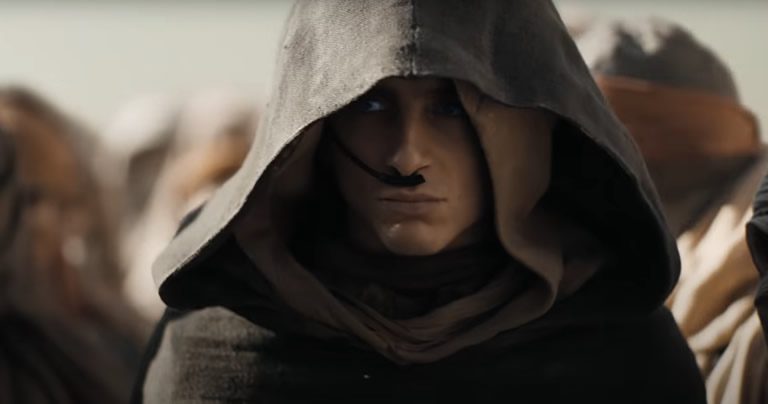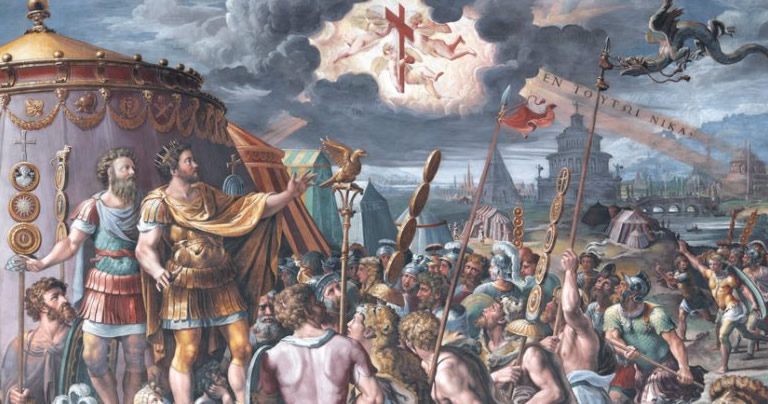
Dune: Part Two is out in theaters today, and it’s pretty spectacular. Sure, the film as its content issues (which you can read about in my review), but if you can keep up with Dune’s dense, detailed story, you’ll be rewarded with the sort of grand cinematic saga I’ve not seen since The Lord of the Rings films.
And the film has a lot of interesting spiritual folds to it. Indeed, the saga of Paul “Muad’Dib” Atreides is inescapably tangled with religion. Almost everyone around him seems to ask, “Is This the messiah we’ve been waiting for?”
One of the exceptions? Paul himself.

Chosen One?
As we learn in Dune: Part One, Paul Atreides comes to the planet Arrakis with his father (the powerful Duke Leto), his family and the Atreides army. The house of Atreides is one of the most powerful houses in the galaxy, and as such, the galactic emperor asked Duke Leto to take control of Arrakis—home to the spice melange, the galaxy’s most important substance (and a powerful narcotic besides).
But an act of betrayal force he and his mother—Jessica, a part of the mysterious, powerful order of the Bene Gesserit—to flee the palace and head into the Arrakis wilderness. It’s a really uninviting place: Paul calls it a “world beyond cruelty.”
But Paul and Jessica fall in with a group of Fremen—Arrakis’ indigenous people—and begin to learn how to survive in this brutal planet. Paul shows such aptitude that, even as Dune: Part Two opens, some Fremen wonder whether Paul could be the Fremen’s prophesied Lisan al-Gaib, a messiah-like figure who, it is said, will lead them to paradise.
But Paul’s not particularly interested in fulfilling prophecy. He takes his very name, Muad’Dib, from the humble kangaroo rat—perhaps partly in an attempt to diminish himself. And as Jessica does her best to convince the Fremen that he is their messiah, Paul tries to demystify the Bene Gesserit order itself—and undercut her authority. He knows that Bene Gesserit missionaries actually planted those prophecies that point to the Lisan al-Gaib for their own complicated purposes. Paul knows they’re “just stories,” and he practically begs his mother to stop telling them.
Paul knows he’s no messiah: He knows there’s no such thing.
But even in the face of his denials, many believe anyway. Stilgar—the first Fremen leader who helped Paul survive and his most passionate follower—flatly tells him, “I don’t care what you believe! I believe!”

True Religion
Small spoiler warning: If you’ve read the books or seen the end of Dune: Part Two, you know that Paul ultimately does take on the role of messiah figure, even if he still didn’t believe he was one. Frank Herbert, who wrote Dune (and four other books in the series) was deeply suspicious of all human constructs, including religion. And in his introduction for his short story collection Eye, he quibbles with the overtly messianic Paul portrayed in the 1984 cinematic version of Dune. “Paul was a man playing god, not a god who could make it rain.”
Herbert’s suspicion of religion is well founded. Every faith system contains its share of very human players. Religion can be a cynical, self-serving construct.
But while Paul insists his no messiah figure, the prophecies—however made up they originally were—are gradually fulfilled. The Dune movies spark a question that I ask myself: Could the divine still work through that system, in spite of that system? We’re broken and we inherently build broken things … but might God still find a way to take that brokenness and use it for His own ends?
In the Bible, we often read how God uses unbelieving nations looking out for their own interests to further His plans. Some, such as Assyria or Babylonia, God uses as an instrument of punishment. But God uses others to save His people.
Cyrus the Great essentially took a backwater nation (Persia) and almost singlehandedly turned it into the world’s greatest empire. He could be ruthless when he felt circumstances demanded it, but he was a pretty savvy politician, too. Sure, he conquered and even decimated a few rival empires. But he crows that he also freed a bunch of folks who’d been displaced by those same empires—including the Jews who’d been under the Babylonian thumb—and, according to the Cyrus Cylinder, “returned them to their dwellings.”
Cyrus was not Jewish, of course (even though he acknowledged the Jewish God in Ezra 1:2). In that same document, Cyrus pays homage to Marduk (the patron god of Babylon), and the Persian people subscribed to Zoroastrianism. But biblical writers say that Cyrus was working for God: Isaiah tells us that Cyrus was God’s “anointed” in Isaiah 45:1, which means he was literally a messiah (though, obviously not the Messiah).

A Sign From Above
Fast-forward 850 years or so, and we meet another emperor, Constantine. For centuries, the Roman Empire had been a pretty unfriendly place for Christians. To be a Christian was illegal and could, literally, get you executed.
In October 312, during a critical battle that would secure Constantine’s claim on the whole Roman Empire, the man saw a vision of a cross against the sun, along with the words “in this sign, you will conquer.” The following year, Constantine issued the Edict of Milan, which granted freedom of religion to most everyone in the Empire—including the long-persecuted Christians.
Plenty of historians are skeptical of Constantine’s sudden turn toward the Christian faith. The Christian Church had continued to grow despite its persecutions, they argue, and it just made sense to turn this threat into an asset. It also had a cross-class appeal, which made it potentially a strong unifying force within the Roman Empire. This wasn’t an act of devotion, they argue: It was an act of political savvy.
Perhaps they’re right. But even if Constantine didn’t see that cross on the sun, there’s no question his move to legitimize the faith was a seminal moment for that faith. It was suddenly OK to be Christian in an empire that encompassed much of the known world. And less than 70 years later, it became the empire’s official religion. From then on, Christianity and Western history were joined at the hip.
Dune: Part Two is a sprawling, fascinating story—and how it incorporates religion is among its most fascinating features. Paul may know that he’s no messianic figure. But don’t tell that to the Fremen, who may see their god at work in spite of it all. I believe, they say.
And history suggests that God can work in plenty of our own unlikely vessels, too.













